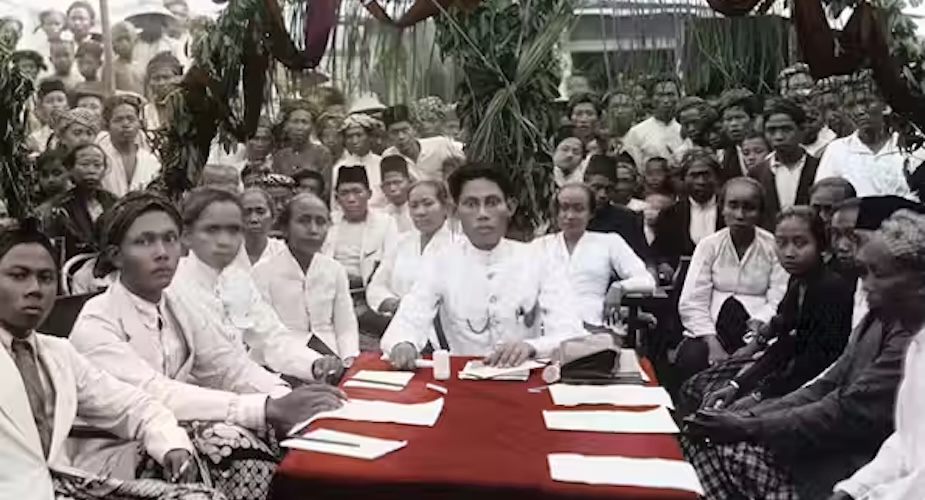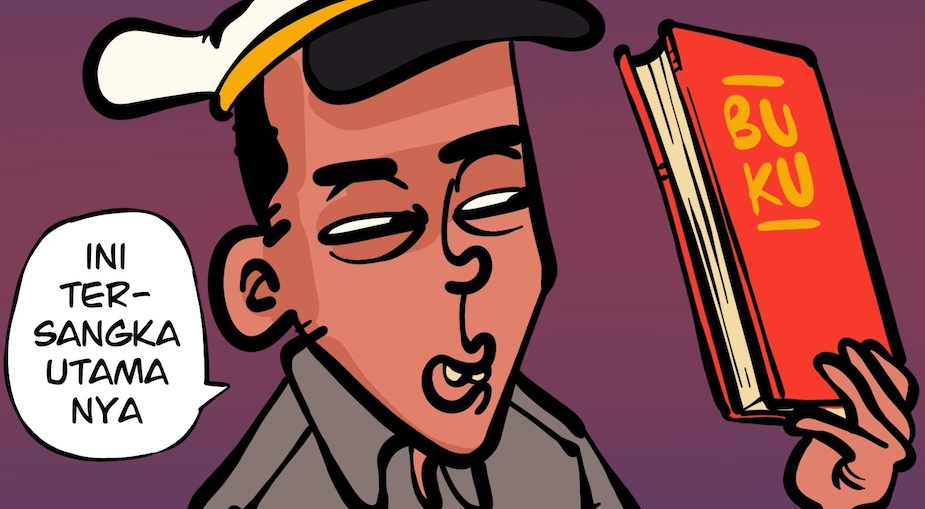Made Soma
In Indonesia Etc, the author Elizabeth Pisani begins by comparing her relationship with Indonesia to that with her ‘Bad Boyfriends’:
‘It prompts laughter, produces that warm fuzzy feeling that goes with familiarity and slightly embarrassing shared intimacies. Then it forgets important anniversaries, insults friends, and tells endless low-grade lies. Just when you think you are really getting to know it, it reveals some hidden secret, or reinvents itself completely. With Bad Boyfriends you know full well it will all end in tears, and yet you keep coming back for more.’
Pisani has a long connection with Indonesia. In 1988, she was first posted to Indonesia as a journalist with Reuters news agency. During this time, she had the opportunity to backpack around Java, Bali and Sumatra.
As she describes it, she left the country in 1991 after the Indonesian military had a different opinion about the accuracy of her reporting on the civil war in Aceh. She returned again between 2001 and 2005 to work with the Ministry of Health specialising in HIV, an experience which she has described in detail in her book The Wisdom of Whores.
In 2011, Pisani made the decision to write Indonesia Etc and introduce her ‘Bad Boyfriend’ to the world. She writes that she was motivated to do so in response to how often she encountered people in London or New York who were puzzled when she mentioned Indonesia. She also wanted to learn more about the country and observe the changes that had happened since the early 1990s.
A journey
As a nation of 13,466 islands inhabited by people from over 360 ethnic groups, which between them speak 719 languages, it is impossible to capture its diversity in one book. Pisani chose an itinerary that would see her commence her journey in the eastern islands, then move west to the islands of Sulawesi, Borneo and Sumatra, before finally ending her travels in Java.
Pisani delivers her observations in both humorous and profound ways. At the beginning of the book, she described her experience of being invited to drink tea with a villager’s grandmother in Sumba. It turned out that the grandmother had died the day before, and it was a custom in that village for a corpse to receive guests each day until the funeral. Her evocative, engaging and entertaining writing style had me eager to read more and to find out what was next.
I admire Pisani’s ability to mingle and fit in with traditional families in remote places. Through people she knew from her previous visits, she was able to immerse herself in their cultures. She explained how, when staying with her old friend Mama Bobo in Tarung, she adapted to village life:
‘It had been a few years since I’d spent any real time in rural Indonesia, but I found myself slipping quickly back into life as a curious but generally harmless outsider. I tried to help out with whatever task was at hand, if not shelling beans then sorting beads to make into trinkets, spreading corn kernels out to dry, bagging peanuts into penny packages to sell to hungry adolescents.’
As she travels from island to island and between villages, towns and cities meeting people, Pisani reveals the complex realities of ‘Indonesia-ness’, the sense of belonging to Indonesia. As someone who lives in a multicultural city, I get the impression that my neighbours feel as though they are a part of Indonesia as a whole. With exposure to the media and the physical presence of the government, in urban communities like mine we buy into the idea of an imagined community, the perception that we are a socially constructed community and part of a united Indonesia.

In rural areas, on the other hand, ‘Indonesia-ness’ is a less tangible, and therefore more vague idea. This point is depicted in Pisani’s account of meeting a village lady who promptly poked her on the nose and asked if she was a westerner or a Javanese. ‘To these ladies who live not all that far from the geographical centre of the nation, Java-foreign was every bit as foreign as Western-foreign. The concept of ‘Indonesian’ was not even in play’, Pisani explained.
Her experience resonates with mine. I grew up in an isolated village, and still visit my parents at least once a month. I have been lucky enough to be able to travel to various parts of Indonesia as well as to neighbouring countries. However, every time I return from a trip and step foot back into my village, one of my uncles or aunts would ask me with complete seriousness, ‘when did you come back from Java?’ To them, anywhere outside of Bali is simply ‘Java’.
One place that I would have loved to have seen on Pisani’s itinerary is West Papua. It would have been interesting to know her perspective on the people of Papua and how their level of ‘Indonesia-ness’ compares to the rest of the country.
Overall, I think Pisani’s Indonesia Etc gives an observant and vivid view of Indonesia. I highly recommend this book as a travel companion for those who would like to explore the largest archipelago in the world. This book would be a great reference for anyone who wants to learn about this fascinating country, including Indonesians themselves.
Elizabeth Pisani, Indonesia Etc.: Exploring the Improbable Nation, New York: W.W. Norton & Company, 2015.
Made Soma (www.madesoma.com) has been teaching Indonesian and English as foreign languages for more than eight years at Jembatan Bahasa.












